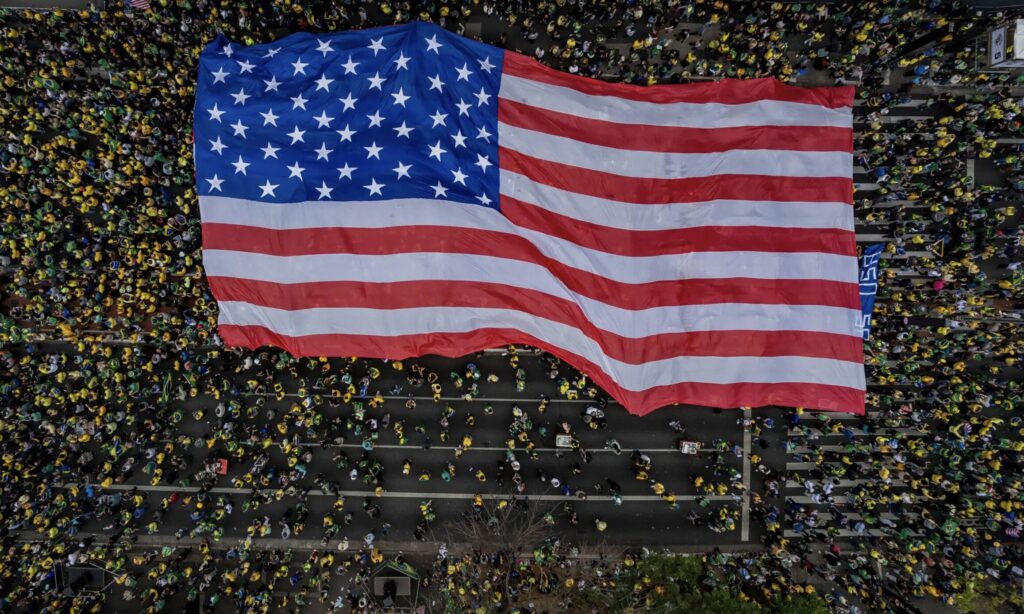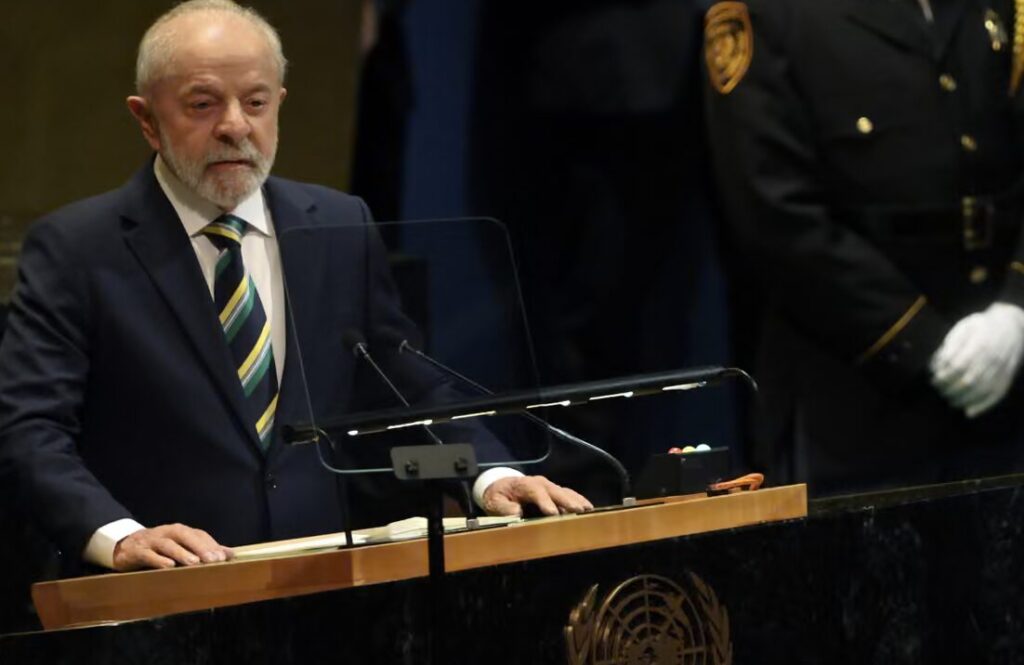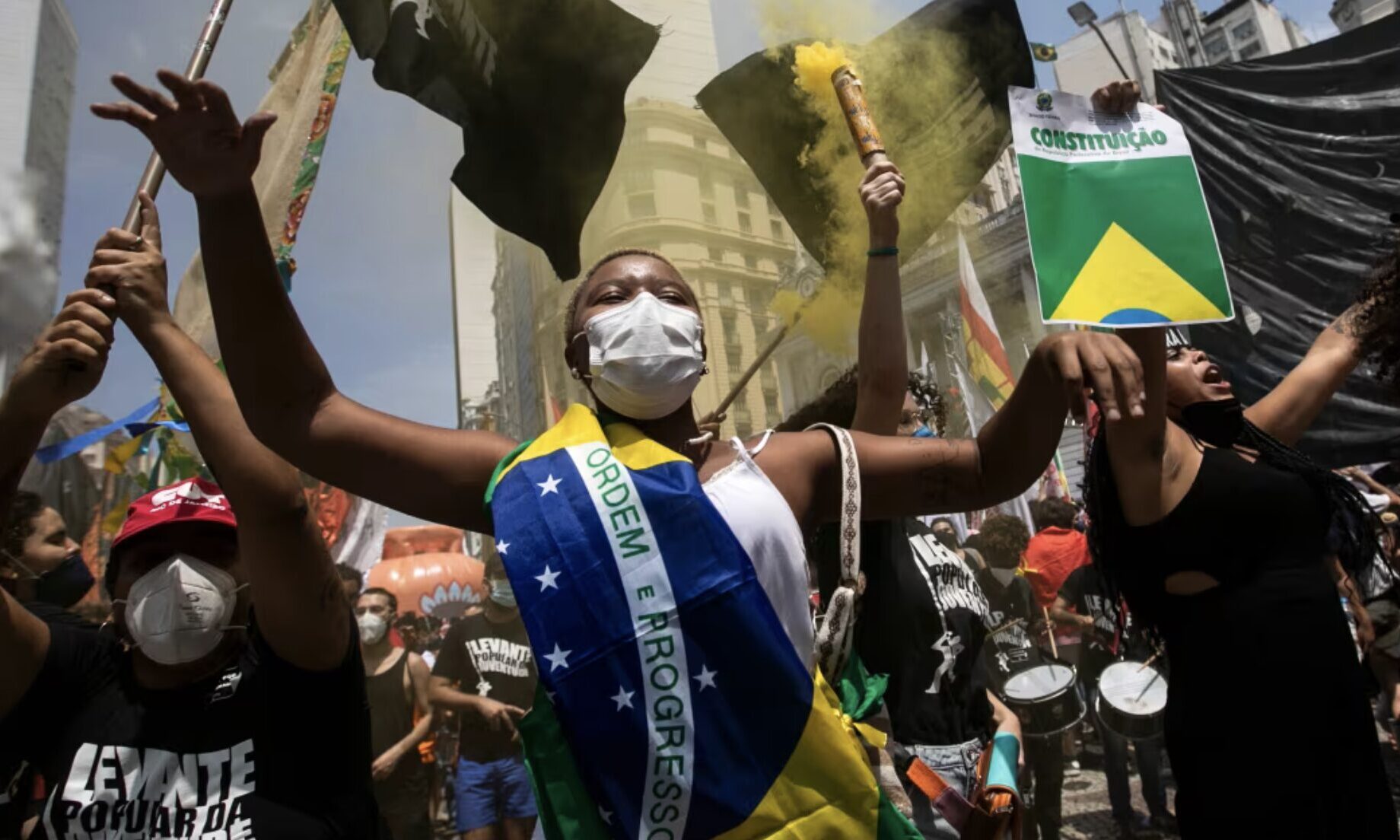On August 1st, 2025, Alexandre de Moraes, Vice President of the Brazilian Supreme Court, awoke to find his visa revoked, his assets frozen, and his family and holding company targeted by similar sanctions.
That afternoon, he walked into the Brazilian parliament and declared, “The due process of this Supreme Court will not speed or slow down the process, the Supreme Court will ignore the imposed sanctions.” Sanctions from the U.S. would not impede the Supreme Court from moving forward with the trial of former President Jair Bolsonaro.
On September 11, Brazil succeeded in convicting Bolsonaro to 27 years and three months in prison for undermining voter confidence in the 2022 election system and, after losing, sought to subvert the democratic process by fighting to remain in power.
Bolsonaro’s offenses included a plan to declare a state of emergency, dissolve the Supreme Court, grant the military unprecedented power, and assassinate his then-opponents, Luiz Inacio Lula da Silva and Alexandre de Moraes, the latter of whom had opened several investigations into his behavior during his presidency.
Much like the January 6th insurrection in the United States, Brazil experienced a similar event in January 2023— thousands of Bolsonaro supporters staged a coup to contest what they falsely claimed was a stolen election.
In the wake of Bolsonaro’s conviction, Trump has launched rampant attacks on Brazil. What began with sanctions on those responsible for advancing Bolsonaro’s conviction has evolved into a declaration of a 50% tariff on coffee, cacao, and beef.
Brazil has stood in defiance against Trump in its conviction of Bolsonaro, and in turn has framed itself as a bastion for democracy.
“If you had told me in the 1970s that Brazil would be demonstrating to the United States how it should act politically, I wouldn’t have believed you,” said Stuart Schwarz, a professor of Latin American History at Yale University, who specializes in Brazil.
The media has echoed this sentiment. In late August, The Economist declared, “Brazil offers America a lesson in democratic maturity.” In a New York Times Op-Ed, Harvard professor Steven Levitsky, author of How Democracies Die, proclaimed that, “Brazil Just Succeeded Where America Failed.”
To the world, Brazil appeared to be a defender of democracy. The reality is far more complicated.
The current makeup of Brazil’s judicial institutions is what gave it the ability to convict Bolsonaro. Brazil’s Supreme Court, the branch responsible for sentencing Bolsonaro, is largely left-leaning. Brazil’s constitution is also much younger—only 37 years old, compared to America’s 238-year-old constitution.
“Our history with democracy is very recent…I would risk saying that we are a little bit more tuned to what an aspiring dictator looks like. In the United States, it’s the first time that the rule of law has been questioned,” Hector Coelho, a second-year law student at the University of São Paolo, said. “We have a lot of fundamental rights embedded in our constitution that allow the Supreme Court to make decisions with a little bit more freedom than the United States.”
Brazil’s multi-party system has also allowed the conviction to surpass political polarization. This multi-party system includes a central section referred to as “centrão,” meaning “large center,” composed of parties in the Brazilian Congress that have no particular political affiliation.
“[Centrão’s] ideology is money. Wherever their personal interests go, they go,” Coelho said.
Under this system, there are more parties and key figures to persuade in Congress. Therefore, Brazil has not fallen into the two-party polarization pitfall that currently dominates the U.S. political scene.
“It’s harder for you to dominate the institutions because there are more parties, and that makes our democracy a little bit more stable when compared to the United States,” Coelho continued.
Supreme Court Justice Moraes has become one of the most prominent figures in Brazil’s stand against authoritarianism. Despite having long fought against right-wing extremism, both in Brazil and in the US, his aggressive approach has warranted criticism. In 2023, he jailed individuals without trial for their social media posts, ordered raids, and, in 2024, notably banned Twitter after it refused to block accounts accused of misinformation.
Moraes’ conviction of Bolsonaro was no less problematic. Having been a target in his assassination plans, Moraes faced an inherent conflict of interest in presiding over the case. The judge is meant to act as a neutral arbiter, with the prosecution serving as the active party.
“The prosecution has to bring to the table the law and the juridical action to provoke the judge. That’s how it should be done,” said Matheus Nucci Mascarenhas ‘28 from Brazil. “Moraes basically absorbed Bolsonaro’s coup d’état case into a larger, ongoing lawsuit so that he could be the one to judge the decision.”
The Court itself, which included Cristiano Zanin, Lula’s former personal lawyer and Minister of Justice, ensured that the conviction was essentially decided before the trial even began.
Brazil is no stranger to pushing the boundaries of due process. The malleability of Brazilian law is rooted in its history: the country suffered a military dictatorship from 1964 until 1985, commencing when the military deposed the sitting President João Goulart in a coup. Throughout the dictatorship, arbitrary detentions, torture, executions, and forced disappearances of political dissenters were widespread, resulting in 434 deaths and missing persons.
Yet, no one was held accountable: following the dictatorship, those involved were absolved of responsibility through the 1979 Amnesty Law. The law, which had originally been intended to protect political dissidents and exiled activists, was misused to protect those accused of wrongdoing. For academics and public defenders, Brazil’s conviction of Bolsonaro has meant retribution for the lack of accountability caused by the 1979 Amnesty Law.
“I must know at least 100 people who were tortured in Brazil. No one was held responsible for the coup,” said James Green, a former Professor of Portuguese and Brazilian studies at Brown University, and member of the Washington Brazil Office. “Finally, there is justice,” Green said.
Drafted after the military dictatorship, Brazil’s constitution reflects its status as a fledgling democracy with inherently unstable politics.
“In Brazil, everything can happen. Our history is characterized by plot twists,” said Gabriela Spangehro Lotta, a professor and researcher in Public Administration and Government at Fundação Getulio Vargas (FGV).
This instability is also evident in Brazil’s shifting ideologies. In the past 40 years, the government has alternated between the left and the right wings. The rule of law, and its definition, have changed along with it.
“Brazil is a country that was founded in a coup,” Mascarenhas said. “The rule of law in Brazil was never something very pristine.”
Bolsonaro was convicted far beyond the realm of due process—Moraes strayed from democracy to defend it. For some Brazilians, however, this is exactly what they believe was needed to make Bolsonaro’s conviction possible.
“If [a political group] is playing outside of the system, then the system is not going to contain them. Due process should not be ignored because it exists to avoid injustices, but when there’s nothing you can do within the system to stop them, and what they’re doing is actively dangerous, then maybe you have to step outside the box,” Coelho said.
Others, like Mascarenhas, see the lack of due process as dangerous.
“Because the due process was not fully respected, there is still the possibility of this whole case being nullified or changed,” Mascarenhas said.
This lack of due process panned out differently for Lula. In 2016, Lula was sentenced to 12 years in jail for corruption by Sergio Moro, a federal judge in the state of Parana. During his trial, the judge actively colluded with the prosecution, documented through an exchange of messages.
Moro, upon Bolsonaro’s election in 2019, was appointed Minister of Justice, rewarded for his politically motivated role in convicting Lula. Lula was imprisoned for a year and a half before his lawyers successfully argued in the Supreme Court that collusion had tainted the case, leading to its nullification in 2019.
Unlike Lula, however, Bolsonaro stands little chance of being acquitted. Amnesty can only take place with the joint agreement of the President, Supreme Court, and Congress, which is unlikely to occur while the left is in power.
Lula’s presidency, following his imprisonment in 2017, reflects the instability of Brazilian politics.
“Brazilian politics are never set in stone because who would imagine that Lula would come back as president, and now be the favorite to run for re-election,” Mascarenhas said.
***

Trump’s sanctions and tariffs on Brazil are perceived as purely politically motivated, and have entrenched Lula’s popularity and unified Brazilians against Bolsonaro. At the onset of U.S. tariffs increasing from ten to 50 percent last month, Lula notably declared: “Brazil will never be a U.S. colony.” It is the American infringement on Brazilian sovereignty that has angered the Brazilian populace the most.
“It’s making Brazilians feel more united, not because of the conviction of Bolsonaro, but because of Trump’s sanctions. The government is framing the sanctions as a common enemy of the Brazilian people,” Coelho said.
Trump’s tariffs have done little thus far to truly disrupt the Brazilian economy. Coffee prices had been expected to increase in the US before Trump lifted the tax on coffee specifically. Instead, tariffs have only pushed Brazil to trade more with China, with which it already had economic ties.
“Lula has a perspective of the empowerment of the Global South,” Mascarenhas said. “Lula’s perspective and actual foreign policy have been to strengthen the connection between those countries.”
Critical to this empowerment is BRICS (Brazil-Russia-India-China-South Africa), an economic alliance of emerging countries that has expanded to include Egypt, Ethiopia, Iran, Indonesia, and the United Arab Emirates.
Shortly after the US launched attacks on Iranian nuclear facilities in June, BRICS hosted a meeting in Rio de Janeiro. At the meeting, an Iranian official was received with high honors, along with the foreign minister of Russia and the second-ranking member of the Chinese Communist Party (CCP). Russian President Vladimir Putin also joined virtually.
During this conference, Lula verbally articulated BRICS’ desire to create a currency independent from the dollar. Losing the dollar as the international trade currency is one of the biggest economic threats the US can face. While Trump’s tariffs are seen as political retaliation, they can also be interpreted as measures to keep Brazil—and Lula’s embrace of the global south and BRICS—in check. Only days after the BRICS summit, the US declared that tariff rates against Brazil would increase from the standard 10 percent. Nearly a week before Bolsonaro was convicted, they were implemented.
“My analysis on it is that [the sanctions] are really a response to the increase of the influence from the BRICS block,” Mascarenhas said.
***

The U.S. played a large role in the Brazilian dictatorship of the 1960s through the 1980s, facilitating the transfer of power to the Brazilian military. Despite this, the military dictatorship and the U.S.’s involvement are not prominent in the everyday consciousness of most Brazilians.
“I would say that Brazil has a very weak memory of its events and the people, and that’s just a part of the way that Brazil developed, and maybe it’s the fault of our education,” Coelho continued.
The narrative that Brazil is finally redeeming itself from the amnesty following the dictatorship is confined to academics and those who hold public office. For most Brazilians, recent events have simply reflected accountability for the unjust actions of a former president.
“It’s not about the dictatorship. It’s about a bad president who did bad things to Brazil, and he’s been convicted for that,” Lotta said.
Unlike the military dictatorship, corruption is central for Brazilians. In 2016, then-President Dilma Rousseff was impeached after being accused of illegally transferring funds between government budgets, in order to increase her chances of re-election.
At the time, corruption ran rampant throughout Rousseff’s Workers’ Party as collusion surfaced related to the state oil company Petrobras. As a result of inflation hikes and unemployment, Brazil’s economy rapidly spiraled downward. The Brazilian stock market reached record lows, and the value of its currency halved.
Rousseff’s impeachment raised several questions about the state of Brazilian democracy. Was Rousseff impeached for a crime she committed, or was her ousting simply politically motivated and influenced by the poor state of the economy? Regardless, Brazilians, disillusioned by the economy and corruption, felt vindicated by her impeachment.
“[People were] just so upset with the idea of corruption in government, and then when Dilma was impeached in 2016 and Lula was arrested [later], everyone was euphoric,” Mascarenhas said.
The economy and trust in government were once the most important aspects of politics for Brazilians. The internet, however, especially in covering Bolsonaro’s trial, has fueled political discussion and highlighted the threat of dictatorship.
“That sentiment that we should avoid dictatorships, and that… the military dictatorship was very bad, that was once reserved [for] academics. It’s now coming to popular view through all of this discourse, and Bolsonaro’s trial is making people more aware,” Coelho continued.
***
Brazilians suffer from vira-latismo. For decades, Brazilians have embodied the role of the metaphorical “vira-lata”— Portuguese for mutts who feed from trash cans, like Brazilians have fed on American cultural and political scraps. To many Brazilians, America is the embodiment of the democratic, economically stable force that their own country strives to be.
“Brazilians overestimate the US and underestimate Brazil,” Mascarenhas said.
According to Coelho, vira-latismo is embodied by both Bolsonaro supporters and Brazilian immigrants in America who support Trump.
“They have this really heavy sentiment of vira-latismo, like, ‘I am upper middle class and my country sucks — I wish I could live in the United States,” Coelho said.
Vira-latismo has manifested itself in the mass demonstrations of Bolsonaro protesters against his conviction. In early September, thousands of protesters unfurled a basketball court-sized American flag on the streets of São Paolo. Trump has become a symbol of resistance for the Brazilian right.
“It was like a really coordinated movement to praise the US, so the whole political movement has been embedded in this idea of the US as a savior of Brazilian democracy,” Mascarenhas said.
The role-reversal Brazil has taken on in its defiance of Trump has done much to combat vira-latismo.
“I think, for us Brazilians, we are so proud of it…We have not been humiliated,” Lotta said. “[Newspapers] are also reinforcing this idea that we are defending our economy, and other countries are not able to do the same. But it’s not connected to Lula necessarily, it’s much more about us as a country, as a society.”
***
While the conviction of Bolsonaro successfully repelled an imminent threat to Brazilian democracy, this victory is a precarious one. The very act of protecting democracy has exposed a dangerous systemic vulnerability: Bolsonaro was convicted without strict adherence to due process. This suggests that in its haste to safeguard its institutions, the Brazilian judiciary risked undermining the fundamental rule of law, revealing a system willing to sacrifice core legal principles in the name of political preservation.
The democratic stability Brazil has achieved through Bolsonaro’s conviction is not guaranteed— it rests on a Supreme Court facing imminent change. As three justices from the Supreme Court approach the mandatory retirement age, the Brazilian election cycle risks replacing the justices with ones who are less inclined to protect Brazil against dictatorship.
“For every election that passes, we have to safeguard our institutions through our judiciary system—which makes the stakes of every election higher,” Coelho said. “We’re just treating the symptom of a disease and not the cause.”
The media’s rush to praise Brazil for “setting an example” overlooks the precarious nature of the struggle and the fact that Brazil has done what should be considered standard for all countries. Bolsonaro’s conviction is a temporary example of democratic vitality; it does not reflect an established pattern.
“Democracy should be the bare minimum… I think that the media is just interpreting the Bolsonaro conviction a little bit immaturely,” Coelho said. “The democratic institutions are holding up by a wire, and it should be a warning sign that what we did here is considered a really big deal.”

